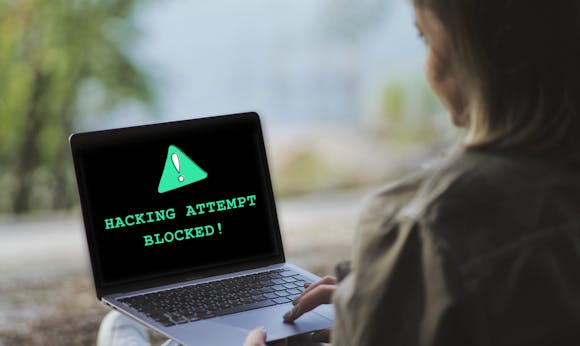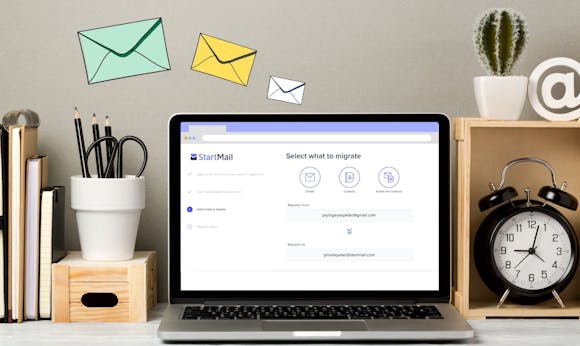
Startling Email Privacy Facts That Will Make You Rethink How to Protect Your Inbox
Startling Email Privacy Facts That Will Make You Rethink How To Protect Your Inbox
Email is a crucial tool for staying connected in both our personal and professional lives, but without proper protection, our sensitive information can be at risk. The number of email accounts being hacked is skyrocketing, and that's just the tip of the iceberg when it comes to email privacy concerns. From government surveillance to phishing scams, the threat to our email security is real. But there are solutions available to help protect your inbox from potential threats. Keep reading to learn about some surprising email privacy facts and how you can take control of your inbox by using a secure email provider.
1. Many free email providers scan and analyze the content of your emails for targeted advertising and other commercial purposes
It might come as a surprise to some that many of the popular free email providers, including Google, Microsoft, and Yahoo, routinely scan and analyze your emails for advertising and other commercial purposes. This means that companies are able to gain access to your personal data and use it for their own benefit. The implications are far-reaching; companies can use this information to determine who you communicate with, what topics you discuss, and even your interests and preferences. The data collected can then be used to build detailed profiles about users or target them with ads. In addition, this data can be sold to other companies, potentially leading to further privacy violations.
2. Regular email communication can easily be intercepted or hacked
While emails are a great way to quickly send messages and documents, it’s important to recognize that the process is inherently unsafe. Regular emails can be intercepted at various points along their journey from sender to recipient, such as during transit or while stored on an email server. That means that the contents of the message can be read and potentially modified by the interceptor. On top of that, emails can be hacked if the email account's password is weak or if the recipient falls victim to a phishing scam, enabling cybercriminals to read and delete emails, steal sensitive information, or use the email account to send spam or malware to others.
Encryption helps to protect emails by using mathematical algorithms that scramble the contents of an email into a jumble of characters that can only be decoded by those who possess the right key. This makes it difficult for hackers or other malicious actors to access and view the content of your emails. For more tips on how to protect yourself against potential email security threats, check out this article from our blog.
3. Even if you delete an email, it may not be gone forever
When it comes to protecting your emails, one of the most important aspects is understanding that deleting an email may not actually delete it everywhere. Many email providers keep copies of your emails for several months even after you delete them. This means that any email can be retrieved from your account if needed. This is another reason why it’s important to choose a secure email provider. A secure email service like StartMail will not only provide you with encryption for your emails, but when you delete an email, it is immediately deleted from your secure user vault.
4. Governments worldwide engage in email surveillance
Governments around the world are engaging in email surveillance, but to varying degrees and through different means. This practice is particularly concerning because of its potential to infringe on the privacy of individuals and freedom of expression. Many countries have laws that permit their governments to engage in some form of electronic surveillance, including monitoring emails sent and received.
For example, until 2011, the US government collected a large amount of email records from within the country. These days, US citizens are becoming increasingly wary of intrusive government surveillance in the name of security. According to a 2021 poll by The Associated Press, 46% of Americans are against the US government reading emails between people outside of the US without a warrant as a response to threats against the nation.
Ultimately, we must all take steps to protect our own data by making use of secure encryption tools, stay informed about the specific regulations in place in our respective country and select our providers accordingly. A secure email service like StartMail, for example, is headquartered in The Netherlands, Europe, which arguably has the strongest privacy laws in the world.
5. Emails can be used as evidence in legal proceedings and be subpoenaed by courts
As if you didn’t already have enough reason to be concerned about your email privacy, emails can also be used as evidence in court. If a court requests it, any emails you’ve sent or received could be subpoenaed and used as evidence. For example, emails can be used to prove that a contract was agreed upon, that one party had knowledge of certain facts or to establish a chain of evidence.
When a court orders an email (or other personal data) to be produced as evidence, it is known as a subpoena. Subpoenas can be issued to individuals, organizations, or service providers to force them to produce information that is relevant to the case. For example, Apple cooperates with the majority of the thousands of law enforcement requests for user data it receives each year. The Guardian reports that the company received 7,122 requests in the US for account data of 22,427 people in the first half of 2021 and provided some data in 90% of cases.
StartMail has never provided a single byte of user data to the US government, or any other government or agency anywhere in the world.
6. Email metadata can be just as revealing as the content of an email itself
That’s right—even if you don’t include any sensitive information in the body of your emails, it’s possible for someone to gain insight into your personal life just by looking at data such as the sender and recipient addresses and the time and date of the email. For example, by knowing when an email was sent and to whom, it’s possible to draw conclusions about relationships and activities.
Again, the solution to this threat is investing in a secure email provider that offers end-to-end encryption and doesn’t keep logs of your activity hanging around. StartMail deletes all logs after 7 days, meaning that no one can access or hand over your information after this time.
7. Over 90% of cyber attacks start with a phishing email
Phishing emails are an increasingly common method of cyber attack, and they can have devastating consequences if they are successful. According to a 2020 report, a shocking 91% of attacks start with a phishing email.
Cybercriminals target individuals and businesses by sending malicious emails disguised as something legitimate. The email might contain a link, attachment, or piece of code that can give the hacker access to the victim’s computer or network. And with so many potential targets, it’s no wonder that email is the number one vector for cyber attacks. Cybercriminals have become increasingly sophisticated in their attempts to gain access to people’s information. They often use social engineering techniques to trick people into clicking on links or downloading files. Phishing emails are not always easy to identify. In some cases, they may contain convincing logos, language, and other elements that make them seem legitimate.
Check out some email hacking horror stories in this blog article and learn how to protect yourself from email-based cyber attacks.
Take a moment to reflect on the importance of protecting your email privacy
In the era of digital communication, email is one of the most important modes of communication, but it can also be vulnerable. As we have seen, emails can be intercepted and hacked, and the information contained in them can be used for malicious purposes.
But there are steps we can take to protect our personal information. By using secure email services like StartMail and implementing safety measures such as encrypting our email communication, we can take big steps towards protecting our privacy.
Start protecting your email privacy with a risk-free 7-day StartMail trial today!
For technical questions about our product, please contact our Support team via support@startmail.com!
More from the blog


What Makes StartMail Different From Other Privacy Email Providers?
Continue reading
Make the Switch: Migrating to a Secure Email Provider to Protect Your Privacy
Continue reading
Don’t Get Tracked Online: How to Use Email Aliases to Protect Your Privacy
Continue reading